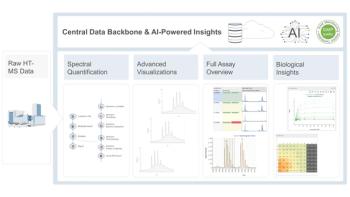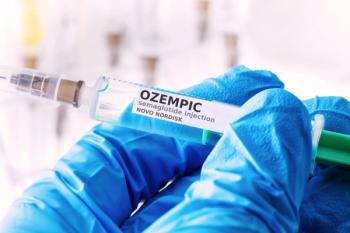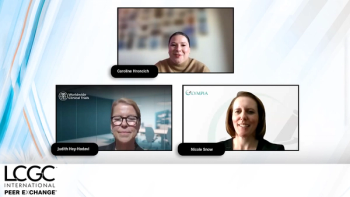
- January 2024
- Volume 20
- Issue 1
- Pages: 8–9
Rising Stars of Separation Science: Shijia Tang

This month we interview Shijia Tang, principal scientist at Genentech, South San Francisco, CA, USA, about her innovative research focusing on the analysis of polymers and nanomaterials used in pharmaceutical analysis. Shijia decribes the benefits of an innovative in-line mixing modulation method for 2D-LC she developed for polymer and oligonucleotide analysis. The advantages of SEC–MALS to explore aggregation mechanisms for therapeutic constrained peptides and mRNA-lipid nanoparticles and their aggregates are also discussed.
This month we interview Shijia Tang, principal scientist at Genentech, South San Francisco, CA, USA, about her innovative research focusing on the analysis of polymers and nanomaterials used in pharmaceutical analysis. Shijia decribes the benefits of an innovative in-line mixing modulation method for 2D-LC she developed for polymer and oligonucleotide analysis. The advantages of SEC–MALS to explore aggregation mechanisms for therapeutic constrained
peptides and mRNA-lipid nanoparticles and their aggregates are also discussed.
Papers Mentioned in Interview
- Chen, T.; Tang, S.; Hecht, E. S.; et al. Discovery of a Dual Pathway Aggregation Mechanism for a Therapeutic Constrained Peptide. J. Pharm. Sci. 2021, 110 (6), 2362–2371. DOI:
10.1016/j.xphs.2020.12.041 - Goyon, A.; Tang, S.; Fekete, S.; et al. Separation of Plasmid DNA Topological Forms, Messenger RNA, and Lipid Nanoparticle Aggregates Using an Ultrawide Pore Size Exclusion Chromatography Column. Anal. Chem. 2023, 95 (40), 15017–15024. DOI:
10.1021/acs.analchem.3c02944 - Tang, S.; Venkatramani, C.J. Resolving Solvent Incompatibility in Two-Dimensional Liquid Chromatography with In-Line Mixing Modulation. Anal. Chem. 2022, 94 (46), 16142–16150. DOI:
10.1021/acs.analchem.2c03572 - Chen, Y.; Lubach, J. W.; Tang, S.; Narang, A. S. Effect of Counterions on Dissolution of Amorphous Solid Dispersions Studied by Surface Area Normalized Dissolution. Mol. Pharmaceutics 2021, 18 (9), 3429–3438. DOI:
10.1021/acs.molpharmaceut.1c00325 - Meany, E. L.; Andaya, R.; Tang, S.; et al. Injectable Polymer‐Nanoparticle Hydrogel for the Sustained Intravitreal Delivery of Bimatoprost. Adv. Ther. 2023, 6 (2), 2200207. DOI:
10.1002/adtp.202200207
Shijia Teng is principal scientist at Genentech in South Francisco, CA, USA. Her research focuses on the analysis of polymers and nanomaterials used in pharmaceutical analysis. She has emerged as a key contributor in quantifying polymers in diverse pharmaceutical products, including amorphous solid dispersions and supramolecular hydrogels. Her research has enhanced the comprehension of polymer release kinetics and mechanisms in these intricate and emerging pharmaceutical formulations. She is an author of 15 publications including Journal of American Chemical Society, Analytical Chemistry, Journal of Chromatography A, and Molecular Pharmaceutics.
Articles in this issue
almost 2 years ago
ISC 2024 Live In Liverpoolalmost 2 years ago
Rolduc 2024almost 2 years ago
Cell Membrane Chromatography with HALO-tag Technologyalmost 2 years ago
LCGC International 2024 New Product Review Call For Submissionsalmost 2 years ago
New Strategies for Oligonucleotide Aggregate Analysisalmost 2 years ago
ChromSoc Announces 2024 Medal Winnersalmost 2 years ago
Vol 20 No 1 The Column January 2024 North America PDFNewsletter
Join the global community of analytical scientists who trust LCGC for insights on the latest techniques, trends, and expert solutions in chromatography.





